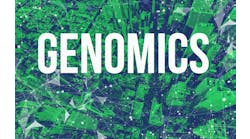NIH-Led Nutrition Study Is First to Leverage All of Us Research Cohort
The National Institutes of Health has issued a call for organizations to help launch its newest initiative, Nutrition for Precision Health, powered by the All of Us Research Program. The aim of the effort is to generate insights that may lead to more tailored nutritional recommendations based on individual differences.
This is the first NIH-led study to leverage the All of Us participant cohort and infrastructure to expand data collection and drive new discoveries. The NIH Common Fund is supporting the study as a cross-cutting program expected to have a high impact on health research over the next decade.
“Just like healthcare, nutrition can’t be one-size-fits-all,” said Josh Denny, M.D., All of Us’s CEO, in a statement. “Better and more precise nutrition guidance has the potential to be a powerful ‘medication’ to better treat disease and improve health. This study has tremendous promise to help researchers learn more about people’s varied responses to different foods and dietary approaches, toward the larger goal of improving health and reducing chronic diseases.”
Nutrition for Precision Health reflects NIH’s growing momentum in nutrition research. These funding opportunities come on the heels of a recent announcement about the establishment of the Office of Nutrition Research within the NIH Office of the Director and the release of the first agency-wide strategic plan for nutrition research last spring.
Designed to implement aspects of the Strategic Plan, the Nutrition for Precision Health program will conduct a study nested in the All of Us Research Program to explore how individuals respond to different diets.
The objectives of the study are:
• To examine individual differences observed in response to different diets by studying the interactions between diet, genes, proteins, microbiome, metabolism and other individual contextual factors;
• To use artificial intelligence (AI) to develop algorithms to predict individual responses to foods and dietary patterns; and
• To validate algorithms for clinical application.
For this initiative, NIH is seeking to work with organizations to provide leadership in diverse areas, including nutrition science, clinical research design and implementation, metabolomics, metagenomics, machine learning and artificial intelligence, bioethics, and more.


